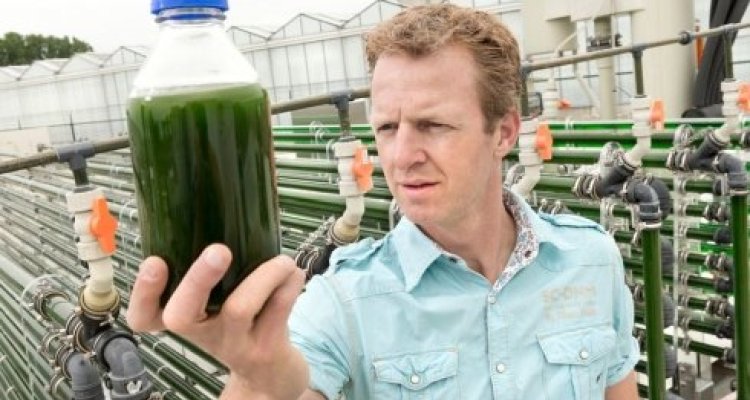
Online
Enzymology for Food and Biorefinery: Proteases, Lipases and Bioreactors
Are you a professional in the food industry and do you want to strengthen your expertise and knowledge about enzymatic processes for food production or biorefinery?
In this online master's course we will study proteases, lipases and bioreactors. Since this online course is part-time, you will be able to combine study and work and enhance your career.
Please note that the dates for the academic year of 2025-2026 are yet to be confirmed, so they might still change.
Registration deadline: 18 December 2025
Target audience
To be able to participate in the course, you are expected to have at least a BSc level of education in Food Science and Technology or a related field, such as Chemical Engineering or Biotechnology.
The language of instruction of this course is in English. Admission to the course requires a level of English as described at the webpage linked in the right-hand column.
Learning outcomes
After successful completion of this programme, you will be able to:
- Predict the course of an enzymatic process by kinetic calculations in various reactor set-ups (e.g. batch, CSTR, plug flow).
- Understand the mode of action of protein and lipid degrading enzymes.
- Understand how to analyze and calculate protein hydrolysis parameters.
Programme
This course builds on the enzymatic aspects of protein and lipid conversion. Examples of these enzymes in food and biorefinery processes will be discussed. Matrix effects and properties of the enzyme play a role in predicting enzyme kinetics. For proteases, the focus will be on understanding important resulting parameters, such as degree of hydrolysis and peptide chain length. In order to be able to predict the enzymatic process in a bioreactor, enzymatic conversions will be discussed and mass balance calculations, including enzyme kinetics, will be done.
The master's course consists of knowledge clips, textual explanations and animations, including exercises with feedback. Furthermore it included a calculation case to understand how to calculate protein hydrolysis parameters and a study case to apply enzyme kinetics in various reactor set-ups. Information will be made available via Brightspace. A handbook for additional background reading, but not necessary to buy: Handbook of Food Enzymology (2003), Whitaker et al. (Ed), Marcel Dekker Inc, New York, US.
Combining courses
When you want to learn more about food biotechnology and processing, other courses are interesting for you too. You can deepen your knowledge in a specific career field without completing a Master's programme. You can register for any combination, but please consider our suggestions in the right-hand column.
Examination
Participation in the remote proctored exam is optional. If you decide not to participate in the exam, you do not qualify for a certificate and/or micro-credentials. The exam is included in the course price. The date of examination is 19 February 2026.
Certification
Upon successful completion, a digital micro-credentials certificate (EduBadge) with 3 study credits (ECTS) is issued. The EduBadge certifies the learning outcomes of short-term learning experiences, marking the quality of a course.
Coordinated by
Register
Join this course now.
Capstone project
After completion of two or more courses there is a unique opportunity to apply what you have learned. You can start a capstone project in consultation with a Wageningen expert in the field. It is a tailor-made project, where you will write a short paper about your results and conclusions. During this work you will be coached by the expert. Price: €1,230,-.